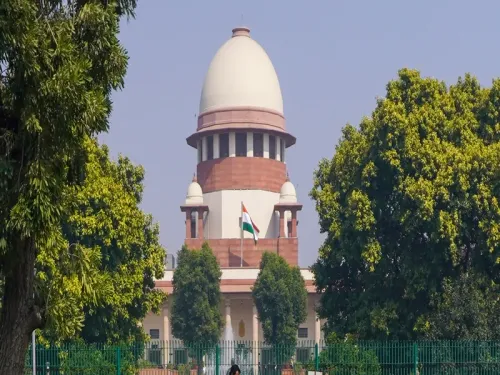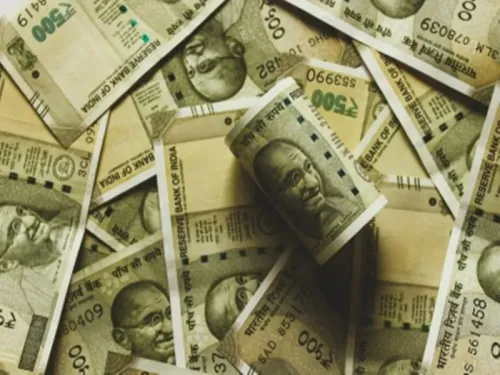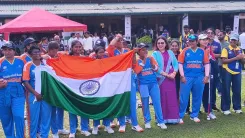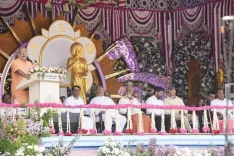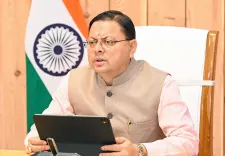Will Rahul Gandhi Justify His Allegations of Vote Theft or Face the Nation's Backlash?
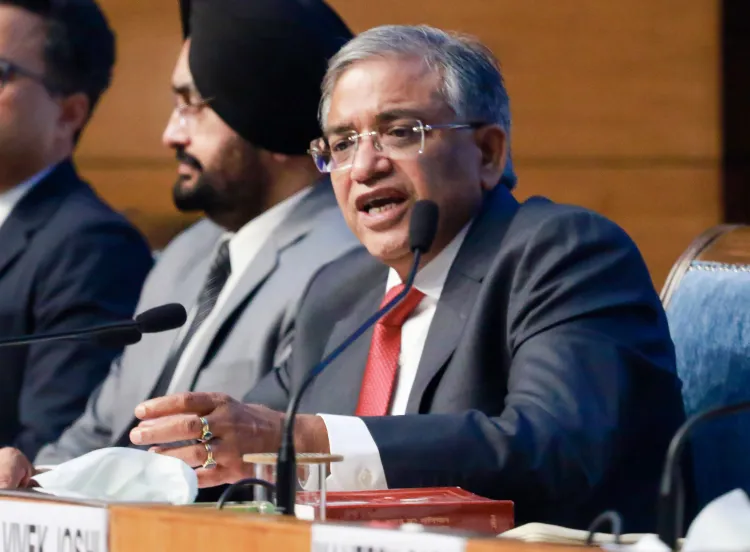
Synopsis
Key Takeaways
- Chief Election Commissioner demands accountability from Rahul Gandhi.
- Electoral integrity is crucial for democracy.
- Over three lakh cases of voter duplication have been rectified.
- Voter privacy is protected under Supreme Court guidelines.
- Political dialogue should focus on substantiated claims.
New Delhi, Aug 17 (NationPress) In a rare display of institutional transparency, Chief Election Commissioner (CEC) Gyanesh Kumar issued a stern warning to Congress MP Rahul Gandhi on Sunday, chastising him for his explosive claims of electoral fraud and insisting on either a formal affidavit to back up his assertions or a public apology to the country.
The Commissioner’s comments, delivered with the seriousness expected from his esteemed position, cast a significant shadow over the Opposition's emerging campaign narrative.
The uproar began after Rahul Gandhi initiated the ‘Voter Adhikar Yatra’—a 1,300-kilometre journey from Sasaram in Bihar, a state preparing for elections—aimed at rallying public opinion against what he labeled as “vote chori” in the electoral listings.
Pointing to alleged irregularities in a Karnataka Lok Sabha constituency, Rahul Gandhi asserted that over one lakh votes were compromised due to duplicate entries, fake addresses, and invalid photographs. The CEC responded with a sharp retort.
“India is not just a democracy; it represents the largest and most complex democratic framework in the world,” he proclaimed.
“To attack the integrity of its voters and the sanctity of its electoral rolls without substantiation is not only reckless; it is a violation of the Constitution itself.”
He further stated, “If one opts to make such serious allegations publicly, they must either provide evidence in the form of a sworn affidavit or apologize to the people of India. There is no alternative.”
The Commissioner elaborated on the issue of voter duplication, clarifying the difference between identical EPIC numbers assigned to different individuals across states—a technical glitch that was resolved earlier this year—and situations where an individual is listed on multiple rolls under different EPICs.
“We have identified and corrected over three lakh such instances. While the system is not infallible, it remains vigilant,” he assured.
Regarding voter confidentiality, Gyanesh Kumar referenced the Supreme Court’s ruling in 2019 that banned machine-readable electoral rolls.
“Searchable lists are allowed, but machine-readable formats are not. The sanctity of a voter’s identity must be preserved,” he emphasized, condemning the unauthorized release of voter photographs in the media.
Discussing Bihar’s Special Intensive Revision (SIR) initiative, the CEC termed it a monumental effort—unprecedented in the last two decades—aimed at purifying and strengthening the electoral lists.
“More than 1.6 lakh Booth Level Agents have been involved in this initiative. Over 28,000 claims and objections have been recorded. This is democracy in action,” he stated.
He was unequivocal about the Commission’s neutrality.
“Every political entity is established through registration with the Election Commission. We do not show favoritism. Our allegiance is to the Constitution, not partisan interests,” he asserted.
He also addressed worries about foreign nationals on the voter lists, stating that anyone unable to verify their Indian citizenship during the SIR process would be removed accordingly. In a closing remark, the Commissioner invoked the moral authority of the electorate.
“When over seven crore voters from Bihar stand with the Election Commission, no doubt can be cast upon their integrity. Questioning them is tantamount to questioning the very essence of our republic.”
As the political storm surrounding voter integrity grows, the Election Commission has made it clear: it will not remain a passive observer when the credibility of India’s democratic process is under scrutiny.

